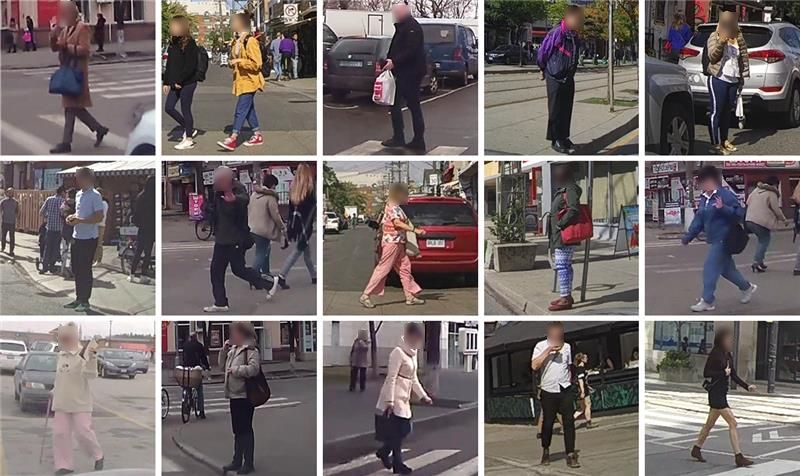Lassonde Computer Science PhD graduate receives the CIPPRS John Barron Doctoral Dissertation Award
Tags:
Dr. Amir Rasouli, a recent PhD graduate from Professor John K. Tsotsos’ research group at the Lassonde School of Engineering at York University, was awarded the 2020 Canadian Image Processing and Pattern Recognition Society (CIPPRS) John Barron Doctoral Dissertation Award. His winning thesis was entitled “The Role of Context in Understanding and Predicting Pedestrian Behaviour in Urban Traffic Scenes”.
Rasouli’s work was focused on understanding and predicting pedestrian behaviours from the perspective of drivers in order to develop systems for intelligent driving systems for both autonomous and assistive driving applications.
One of the barriers for autonomous, or self-driving, vehicles is being able to react, understand and adapt to the unpredictable nature of pedestrians. To address this barrier, Rasouli set out to investigate how drivers and pedestrians were interacting with each other. Rasouli, along with another student from Tsotsos’ lab, Iuliia Kotseruba, spent over 60 hours driving around Greater Toronto Area collecting information on pedestrian-vehicle interactions. With a dashboard camera inside the vehicle, they recorded a large collection of videos of pedestrians in traffic scenes.
“We went down several different types of streets – main, side and residential – at different times of the day to ensure that we captured as many interactions as possible,” recounted Rasouli.

These novel datasets were published in 2017 and 2019 in the Proceedings of the International Conference on Computer Vision (ICCV). Since this type of data was extremely limited in published literature, the resulting models and analyses that Rasouli and his colleague conducted were unique and had a high impact. These two publications were titled “Are they going to cross? A benchmark dataset and baseline for pedestrian crosswalk behaviour” (2017) and “PIE: A Large-Scale Dataset and Models for Pedestrian Intention Estimation and Trajectory Prediction” (2019). Rasouli was supremely productive on this subject throughout his graduate studies, accumulating 11 publications spread across multiple peer-reviewed journals and conference proceedings as well as a number of preprints on open-access archives.
A world traveller, Rasouli originally completed his undergraduate degrees in computer systems engineering and business management at the Royal Melbourne Institute of Technology (RMIT) in Australia before relocating to Toronto and joining Professor Tsotsos’ lab as a master’s student. Rasouli initially focused on developing active visual search capabilities for autonomous robots. It was not until he began his PhD studies when he transitioned to the applications in the context of autonomous driving systems.
Rasouli spoke highly of the freedom given to him by Professor Tsotsos during his PhD studies as well as the relationship that he had with Professor Tsotsos throughout his graduate studies. “He treats his lab like a family,” said Rasouli. “He let me discover what I liked to do and was always there to support me”.


Since defending his thesis in May 2020, Dr. Rasouli is now a senior engineer at Huawei Technologies working at their Markham-based research lab, Noah’s Ark. He completed an internship there at the end of 2019 and the connections that he built at the company encouraged him to seek out employment opportunities with them upon completing his PhD. In fact, Rasouli is continuing the same type of research at Huawei as he was doing at Lassonde – studying pedestrian behaviour.
“I like what I’m able to do at Noah’s Ark,” Rasouli said. “It is truly a research group and we’re given autonomy to investigate the problems we are interested in.”
Rasouli was honoured with this award at a virtual banquet on May 28th at the Conference on Computer and Robot Vision (CRV). This award was recently renamed the John Barron Doctoral Dissertation Award in memorial to John Barron, a former PhD graduate from Professor Tsotsos’ research group at the University of Toronto and a faculty member at the University of Western Ontario.
This is the second year in a row that a PhD graduate from Professor Tsotsos’ research group has won this prestigious award, Calden Wloka received the award in 2019 for his thesis entitled “An Evaluation of Saliency and Its Limits”.
This story also appeared in YFile.